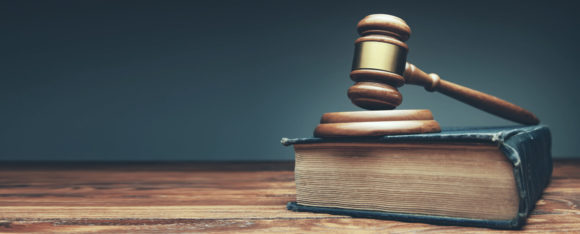The Massachusetts Supreme Judicial Court (SJC) has ruled that a University of Massachusetts Boston (UMass) student newspaper editor cannot be held liable for defamation after republishing police blotter entries describing a man’s allegedly suspicious activities near campus.
In its ruling, the court decided that plaintiff Jon Butcher’s claims of intentional infliction of emotional distress and defamation after reports of his allegedly suspicious activity near campus were published in a UMass student newspaper are protected by the fair report privilege.
Case Background
This decision comes after the UMass police department received a report in March of 2013 of a man engaged in suspicious activity at the John F. Kennedy station on the Massachusetts Bay Transportation Authority’s Red Line (JFK Station).
When police arrived, a bus driver informed them he had observed a man taking photographs of women on the bus. Police then interviewed a second witness, a bus company employee, who also said the bus driver had observed a man taking photographs of people. The employee, who was a bus starter, indicated the man was wearing dark glasses and did not appear to be a student. The employee got on the bus and sat next to him in an effort to dissuade him from taking any more photographs.
The police included an account of this report, and their attempts to find the previously unknown man, in their daily public police log (blotter).
At the time the activity was reported, defendant Cady Vishniac was a UMass student and the news editor of the school newspaper, Mass Media. Mass Media republished the blotter entries for that week, including the report of the previously unknown man’s allegedly suspicious activities.
After the UMass police were unable to locate the man, a UMass police officer sent a photograph to Mass Media asking for help identifying him. Mass Media republished a version of the report accompanied by the photograph. Soon after the photograph was released, the previously unknown man was identified by a coworker on March 27, 2013.
According to Butcher, these reports – which circulated for more than one week without his knowledge – were false. With this in mind, he asserted he is both a victim of an assault by a bus driver and by the publication of slanderous stories suggesting he was a sexual predator.
Butcher offered his account of the incident, stating he was on his way to work at UMass when he decided to take photographs of the buses housed at the JFK Station in order to document what he saw as serious safety concerns regarding the bus company and its drivers.
He believed he had permission to take these photos because the bus company was engaged in an ongoing union dispute, and the union had encouraged members to document any problems. He contended that a bus driver saw what he was doing, accused him of taking photographs of the driver and confronted him. Then, the driver attempted to block him from leaving the bus, according to Butcher.
That afternoon, Butcher sent an email to the UMass office of public safety under the pseudonym “Eric Jones,” describing the encounter. Police replied to the message on March 15, but received no response.
Butcher acknowledged he had sent the email from “Eric Jones” to preserve his privacy but insisted he had done nothing wrong and was only attempting to protect himself from the attack of the bus driver and the unsafe conditions on the bus.
After Butcher was identified, UMass police took possession of his UMass-owned cell phone, which was issued in conjunction with his job, and conducted a search of the images stored on it with the assistance of an assistant district attorney. None of the files dated March 13, 2013, were photographs of women. Instead, several photographs from the time of the incident depicted buses and a bus driver.
Legal Action
In January 2014, Butcher filed a six-count complaint in the Superior Court against UMass and several individual defendants. In May 2015, a Superior Court judge allowed the defendants’ motion to dismiss and dismissed all of the counts except Butcher’s claims of defamation against Vishniac and intentional infliction of emotional distress against Vishniac and individual University defendants.
The University defendants and Vishniac jointly filed a motion for summary judgment in September 2016, and the motion was granted in November 2016. In allowing the motion for summary judgment, the judge determined the content of the articles was both attributed to official police logs and a substantially accurate account of those logs. He concluded, therefore, that the purportedly defamatory statements fell under the “fair report privilege” and were not actionable.
Butcher appealed and, in September 2018, the Appeals Court reversed the judgment as to Vishniac after concluding the fair report privilege did not apply. The Massachusetts SJC then granted the defendants’ application for further appellant review limited to the claims against Vishniac.
Massachusetts SJC Justice Barbara Lenk stated in her opinion that once police undertake an official response to a complaint, both that response and the allegations that precede it fall within the fair report privilege. With this in mind, both the Mass Media report of the UMass police response and the allegations that triggered the response were privileged.
The second Mass Media publication also fell within the fair report privilege, according to Lenk’s opinion, as that article included two related communications – a republication of relevant details from the police blotter and a photograph of Butcher.
For related reasons, the Massachusetts SJC concluded the photograph also was privileged. This is because when the police reach out to local journalists and ask for their assistance in identifying an unknown person, they are performing an official act that falls under the fair report privilege, Lenk’s opinion stated.
“Although the reports at issue here thus fall within the scope of the fair report privilege, that does not foreclose liability,” she warned in her opinion, however. “The privilege is not absolute; it can be lost if a plaintiff shows that the publisher acted with malice or that the report is not a ‘fair and accurate’ portrayal of official actions or statements.”
Lenk went on to say in her opinion that there is little doubt the first publication was a fair and accurate report of the police blotter. She stated that the second publication, however, warrants closer scrutiny and pointed to three inaccuracies in the article – it identifies the source as a student, while the blotter does not, it misstates that the subject was taking photographs on the UMass campus instead of at the JFK Station, and it adds that the plaintiff took photographs of women “without their permission.”
That said, inaccuracies do not amount to falsity as long as the substance of the article can be justified, Lenk stated in her opinion, concluding that “the rough-and-ready summary” of the report was sufficiently accurate.
“The defendants’ statements were privileged; such a privilege cannot be evaded simply by relabeling a deficient claim,” Lenk’s opinion stated. “Accordingly, we apply the fair report privilege to both actions.”
The case is Jon Butcher vs. University of Massachusetts & others.
Topics Lawsuits Law Enforcement Massachusetts
Was this article valuable?
Here are more articles you may enjoy.



 Trump Demands $1 Billion From Harvard as Prolonged Standoff Appears to Deepen
Trump Demands $1 Billion From Harvard as Prolonged Standoff Appears to Deepen  Allstate Doubles Q4 Net Income While Auto Underwriting Income Triples
Allstate Doubles Q4 Net Income While Auto Underwriting Income Triples  Uber Jury Awards $8.5 Million Damages in Sexual Assault Case
Uber Jury Awards $8.5 Million Damages in Sexual Assault Case  Chubb CEO Greenberg on Personal Insurance Affordability and Data Centers
Chubb CEO Greenberg on Personal Insurance Affordability and Data Centers 


